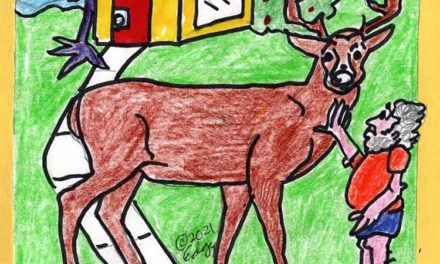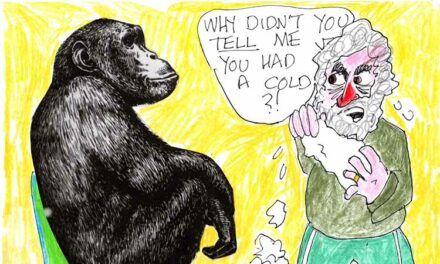Predicting earthquakes
By Ed Goldman
Having lived through a few earthquakes, though never in any real danger (except for believing I was in real danger), I’ve been fascinated by California scientists’ declarations recently that they’ve found a way to detect an earthquake—as much as a few seconds before it hits. To me, this is not a serious improvement on predicting the past. Example:
To be fair, if you have some distance between you and the quake’s epicenter, the new warning system may very well give you time to dive under a desk, provided you work at or near one, or move away from the plate-glass picture windows in the lovely home you bought last year in the Calaveras County town of San Andreas because you thought the name of the town and the famous earthquake fault-line that runs under the state was just a co-inky-dinky. You know, like there being a Moscow in Russia as well as in Idaho. Or the fact that Florida isn’t the only state with a Miami—try Arizona, Indiana, Kansas, Missouri, Oklahoma, Texas and West Virginia. (Can you imagine your disappointment if you’d tuned into a show called “Miami Vice” and found that it was set in Oklahoma?)
First, let’s talk about MyShake. While my marketing work over the years has seen me doing a fair amount of branding, this strikes me as being a pretty cutesy name for warning about something that can have deadly consequences. MyShake sounds like an app you’d use to reserve a McFlurry at McDonald’s. Can we expect the next generation of warning apps to have names like HomeDisadvantage (to signal your domicile is under siege), TopsyTurvyPervy (to indicate your car has just overturned on Interstate 80 and you recognize the only driver who’s stopped to help you as a registered sex offender) or MyGod (to let the world know you’ve just been caught up in The Rapture and won’t be home for dinner in the next several millennia)?










